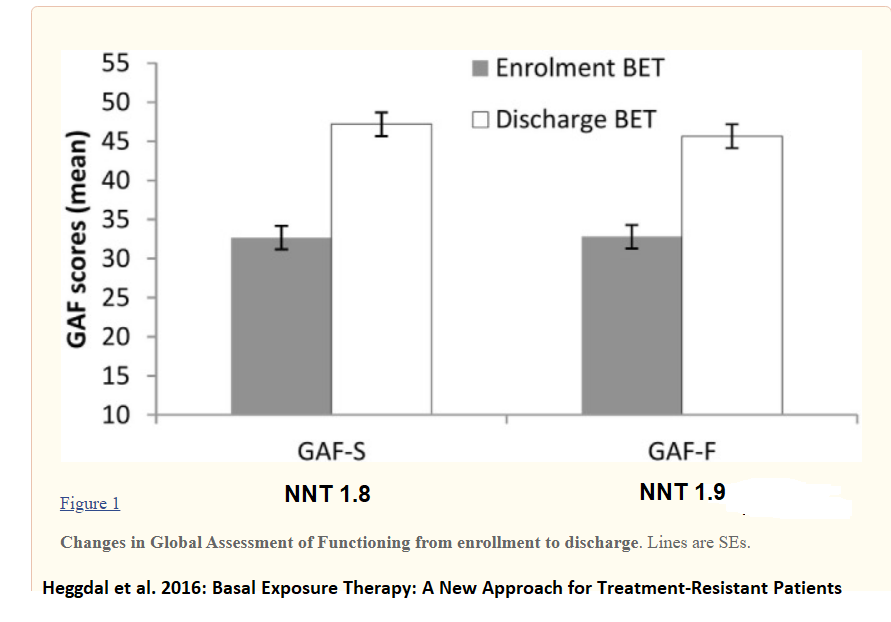
The United Nations Special Rapporteur on the right to health Mr. Pūras has called for «World needs “revolution” in mental health care». “There is now unequivocal evidence of the failures of a system that relies too heavily on the biomedical model of mental health services, including the front-line and excessive use of psychotropic medicines, and yet these models persist”
New WHO guidance seeks to put an end to human rights violations in mental health care, Verdens helseorganisasjon WHO 10. juni 2021
Medication free treatment is necessary in order to avoid forced drugging of those who do not want medication.
How many patients are treated medication free?
The Constitutional Court in Germany decided that forced treatment violates the Constitution and can not continue. "Germany without Coercive Treatment in Psychiatry—A 15 Month Real World Experience". Laws 2016, 5(1), 15; https://doi.org/10.3390/laws5010015 . This real world experience proved that the CRPD demand to stop forced treatment is realistic and could be done by legislaters.
Some hospitals succeeded to train personnel to handle less forced treatment. Responding to Crises - Alternatives to Hospital: Kliniken Landkreis Heidenheim gGmbH, Trieste 23rd Sept 2019: http://www.triestementalhealth.org/wp-content/uploads/2019/10/Zinkler.pdf shows that it is possible to avoid forced drugging without increasing isolation, seclusion and restraint. Kliniken Landkreis Heidenheim has stopped forced drugging but still uses isolation, seclusion and restraint violating CRPD. Germany has 82 million inhabitants Kliniken Heidenheim covers 120 000 inhabitants.
Based on this experience Martin Zinkler and Sebastian von Peter proposed: "End Coercion in Mental Health Services—Toward a System Based on Support Only". Laws 2019, 8(3), 19; https://www.mdpi.com/2075-471X/8/3/19
However mainstream psychiatry criticized and strongly opposed the proposition to end coercion: "Coping with Criticism and Embracing Change—Further Reflexions on the Debate on a Mental Health Care System without Coercion". 2021 Laws 10: 22. https://www.mdpi.com/2075-471X/10/2/22/pdf
The Door to a
Revolution in Psychiatry Cracks Open
A MIA Report: Norway's Health
Ministry Orders Medication-Free Treatment
By Robert Whitaker -
March 25, 2017:
https://www.madinamerica.com/2017/03/the-door-to-a-revolution-in-psychiatry-cracks-open/
Tromsø had less than 10 beds. There are plans to shut done
medication free treatment i Tromsø.
Medication-Free
Treatment in Norway: A Private Hospital Takes Center Stage
By
Robert Whitaker - December 8, 2019:
https://www.madinamerica.com/2019/12/medication-free-treatment-norway-private-hospital/
This hospital has 60 beds. In Norway there are approx. 3500 beds in
psychiatry.
A Revolution Wobbles: Will Norway’s “Medication-Free” Hospital Survive? Politics, Mainstream Psychiatry May Shutter Lake Hurdal Recovery Center. By Robert Whitaker - January 11, 2023: https://www.madinamerica.com/2023/01/medication-free-treatment-norway/ This private Hospital had to close, because funding stopped.
Patients who do not respond to repeated treatments represent a particularly demanding challenge for specialized mental health-care services are treated with basal exposure therapy (BET). The BET ward consists of 6 beds. This therapy provides help to those who wish to become drug-free. Afterwards patients are better able to psychological therapy. The findings indicate that BET may be a promising inpatient psychotherapeutic approach for previously treatment-resistant patients with severe and comorbid conditions.
There are approx. 24 medication free beds in Norway out of 3500.
So there are very few possibilities in both Germany and Norway. Mainstream psychiatry dominates following the medical model treatment philosophy that all patients have to be medicated and sees no possibility for medication free treatment.
WHO published 21. June 2021 with: "New WHO guidance seeks to put an end to human rights violations in mental health care" promoting. Basal exposure therapy (BET), Kliniken Heidenheim who stopped forced drugging and Soteria Berne. This is a statement against more than 99% treatment following mainstream psychiatry.
World Health Organization & United Nations. Office of the High Commissioner for Human Rights 9 October 2023: Mental health, human rights and legislation: guidance and practice. «Coercive practices in mental health care violate the right to be protected from torture or cruel, inhumane and degrading treatment, which is a non-derogable righ»
Bergström et al. 2018 compare FEP Open dialogue patients with all FEP patients in Finland over a period of 19 years. Open dialogue (OD) uses neuroleptics for 20% of patients in the beginning, standard treatment (CG control group) 70%. 97,3 % of the CG get neuroleptics at some point. At the end 36% of OD patients use neuroleptics, for CG it is 81%. Disability allowance, readmission and patients under treatment halves with OD
22. November 2023